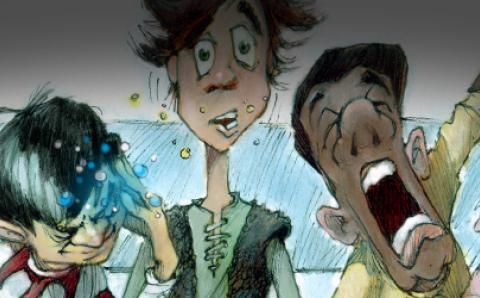Just after Barack Obama won a first term as president of the United States, a profile of retired White House butler Eugene Allen ran in The Washington Post. Allen served at the White House with eight presidents, starting with Truman and ending during Reagan’s administration. In the new movie Lee Daniels’ The Butler, Forest Whitaker plays the title role, an African American butler named Cecil Gaines, who is a fictionalized version of Allen.
My advice to you is to hold off on learning more about Eugene Allen until after you watch the film so that you can experience the movie without the distraction of knowing the facts. Afterward, by all means, I encourage you to read the Washington Post article as well as a fact-checking article from Slate magazine. In doing so, I came away with increased respect for the man. But from here on out, I’ll refer only to story of the movie character.
The strength of Lee Daniels’ The Butler is the way it highlights the fact that during one man’s lifetime so much has happened in civil rights in the United States. Starting his life on a cotton plantation, the future butler could never have imagined becoming familiar with eight presidents and then seeing a black man become president. The young Cecil Gaines makes his way north, looking for better opportunities, eventually landing in D.C. and being offered a job at the White House.
Gaines escapes the punishing life of the cotton field and is able to support his family with a home, a car, an education. Meanwhile, his older son, Louis, who is embarrassed to have a domestic worker for a father, becomes involved in the civil rights movement. The film brings out the indignities and the triumphs experienced by both father and son.
The major tension lies in that father-son relationship. Cecil wants more for his children than he had as a child. His son’s involvement in protests seems counter-productive to Cecil; instead of getting an education and moving ahead, Louis is losing time and money doing dangerous things. Likewise, Louis is frustrated at a father who seems, in his eyes, to be inordinately proud of being a servant in a White House that isn’t bringing change to the country the way Louis wishes it would.
Oprah Winfrey plays Cecil’s wife, Gloria; both Winfrey and Whitaker turn in fantastic performances. The family dynamics are the heart and soul of this movie, and the fine acting elevates it above some of the more contrived moments. Many times it feels as though we are peering into a real home peopled with real, conflicted parents and brothers who are constantly competing. None are portrayed as saints; all have serious shortcomings.
On the other hand, the parade of presidents played by famous actors might leave the audience entertained but distracted. Rather than seeing Eisenhower, Reagan, and Nixon, it’s hard to avoid seeing Patch Adams/Mrs. Doubtfire (Robin Williams), Severus Snape/Sheriff of Nottingham (Alan Rickman) and, well, John Cusack.
James Marsden and Minka Kelly make a fabulous pair of Kennedys, however, and Mariah Carey is barely recognizable as the mother of the young Cecil Gaines. Lenny Kravitz brings quiet strength as one of Cecil’s coworkers. And it is truly entertaining to watch Jane Fonda disappear into the role of Nancy Reagan, even needing to play her somewhat sympathetically, at least part of the time. Talk about casting against type.
A friend mentioned that a review she read equated this film with Forrest Gump. There are some similarities, in that a personal connection to so many major historic events pushes the boundaries of believability. But in this case a huge segment of the population truly was affected by all of these historic events, because each event was part of the same fight for rights and freedoms. Thanks to great characters and acting, in spite of some big flaws, this movie succeeds in bringing viewers into the historical landscape, reeling with its characters from the sweeping changes that came about in the course of one lifetime. (Weinstein)
About the Author
Kristy Quist is Tuned In editor for The Banner and a member of Neland Ave. CRC in Grand Rapids, Mich.









